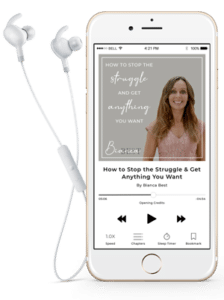
Learn these 4 ways to optimise your learning
Next week my youngest son is going to see an educational psychologist. He’ll sit a couple of papers examining Maths and English ability, he’ll be assessed on verbal and non-verbal solutioning, his processing speed will be calculated and he’ll have lots of discussion about his thoughts on school, inner reactions to classroom situations and more. 2 weeks later I’ll receive a detailed report guiding me and him on his optimal learning path. We’ll have identified gaps in his knowledge per curriculum expectations, the way his brain ignites over different stimulus, how he retains information best and essentially we’ll have a map to ensure he excels and most importantly enjoys learning.
When did anyone ever assess you and how you learn? When did you take the time to understand your own uniqueness in all of these areas? How do you retain information? When are you most alert and receptive? And potentially most importantly, in today’s accelerated and accelerating world, how do you self-direct your learning? Let’s attempt to answer these questions.
In today’s era of information abundance and life busyness it’s crucial we’re selective in what we consume and how.
- There’s a plethora of information continuously vying for our attention. In advertising consumption alone we’re apparently exposed to 5000 pieces of marketing per day, the majority absorbed subconsciously. In already exhausted brains this is unhelpful but unavoidable.
- The algorithmic echo chambers big tech solicits mean that what we are exposed to as ‘news’ is a narrower and narrower filter bubble. Upshot – we need to work harder to expand our consumption universes, learn 2 sides to every story, gain multiple perspectives, etc, simply to be fully and fairly informed. Editorial is never journalistically neutral.
- The advent of online worlds, social media and smart phones mean accessibility of information is rapid and vast. Good for immediately answering why indeed the sky is blue, and ‘Do ants sleep Mummy?’, but bad for our ability to concentrate and process long form content. Our pre-frontal cortexes are actually shrinking the more dependent we become on the dopamine inducing immediacy of information gathering. Seriously. If we don’t deliberately regulate our attention spans to get back into concentrated flow states regularly our ability for long term planning diminishes. We threaten to evolve as hedonistic impulse freaks. (Take note – there’s a reason Steve Jobs ran a low tech home with children’s device time heavily restricted.)
So, there’s a lot going on extrinsically which means we need to work harder to proactively select what we learn and indeed what we expose ourselves to.
 But what about how we learn based on our own neurology? There are 3 factors impacting our optimal learning state.
But what about how we learn based on our own neurology? There are 3 factors impacting our optimal learning state.
- Our cognitive function peaks when hormones and neurotransmitters are in harmony. So serotonin, norephedrine and dopamine levels should be steady and regular for the right emotional and physiological state to receive new information.
- Protecting the homeostatic chemical state of the body is achieved through a healthy lifestyle which means a nutritious diet devoid of processed foods, alcohol and nicotine and regular physical activity. And yes a caffeine surge may increase alertness initially but it’s not a sustainable state purely by dint of the fact it’s artificially altering your body’s equilibrium. Whenever we adjust a state synthetically, our body and brain work harder to compensate in other ways and thus nervous system fatigue ensues eventually.
- Leading us to the final point that we need plenty of rest to learn, maintain concentration and retain information. This manifests in 2 ways – rest between burst of productivity, and decent, quality sleep each night. Scientists advise breaking every 90 minutes across the work day to walk, meditate, chat, sit, read, make a cuppa, just shift mental states deliberately as ‘change is indeed as good as a rest’. And we’re all well aware how hard doing anything is without our full quota of sleep so protect your nightly sanctuary and build a sleep plan. (See my article Why Where and How You Work Matters (and how to optimise it for you) – Flourish with Bianca Best on identifying your Chronotype and maximising your rest periods.)
Okay, so now we understand what’s going on both outside and inside. There’s abundant distraction and risk to our most naturally productive learning states, but as ever when we take accountability we can hone ourselves and our lives to achieve what we want. Follow these steps to build your solid learning plan.
 Flourish Progress Plan
Flourish Progress Plan
- Write a list of every topic you want to learn. This list should tumble out abundantly with items you’re interested in for pure interest’s sake, with items for professional growth and career development, with items for necessity eg health, parenting, etc, whatever. What do you want to learn and why? Make the list and do the work on adding the why.
- Now consider where you can get this information and in what form? My children rely on YouTube as their ‘magical universe of learning’ (actual phrase my 8 year old son once used). What industry newsletters can you subscribe to? What editorial can you unsubscribe from? Does the BBC serve impartial news or propaganda? Ask yourself which voices you trust or which new voices you should push yourself to listen to? Expand and modify your feed.
- Organise your time to allow for learning with dedicated mental space to consume. An hour every morning reading the paper? A podcast whilst you run? An audio book whilst you clean? What works for you to fit learning in each day, week, month? Can you even go further and build in devoted study weeks across the year as Bill Gates does for instance? He shuts himself in a cabin with numerous tomes and reads and thinks undisturbed for 3 weeks every year religiously.
- Observe your physical state and assess lifestyle improvements you could make per the 3 factors mentioned earlier which are more conducive to peak cognitive function. Remember we are all bio-individual so if a friend is sluggish and can’t concentrate after a heavy bread-fest, it doesn’t mean grains necessarily slow down your brain’s processing power too. Observe and play with your own learning optimisation.
Remember we can only control the controllable so whilst there will always be unchosen stimulus entering our psyches, there’s an awful lot we can do once we become conscious and intentional with our decision making. I hope the above helps and I’ll leave you with a little Dr Seuss quote “The more that you read, the more things you will know. The more that you learn, the more places you’ll go.”
― Dr. Seuss, I Can Read With My Eyes Shut!
Go forth and flourish!
Written with love from me to you, Bianca x










